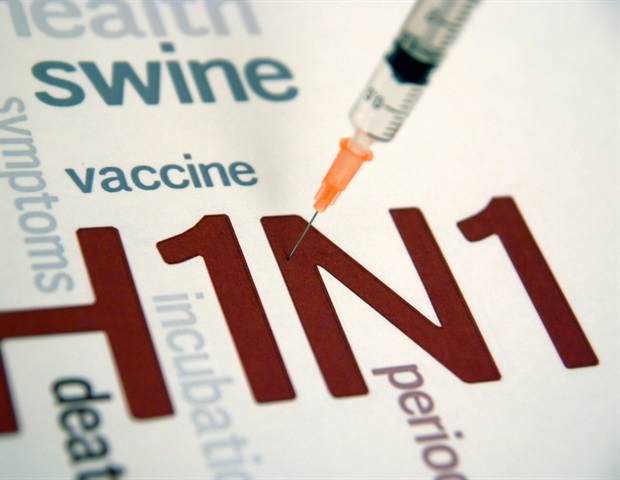DHH Issues Back-to-School Guidelines for Flu Prevention
For Release On: August 10, 2009
Baton Rouge: With the school year now underway throughout most of the state, health officials are urging students and parents to add one more item to the back-to-school checklist: a plan to avoid getting and spreading the flu and for what to do if someone in your family does get it.
"We fully expect to see widespread seasonal and H1N1 flu activity, so families should plan for what to do when it happens," said Louisiana Department of Health and Hospitals Secretary Alan Levine. "Fortunately, the prevention and treatment tips for both strains of the flu are the same. With aggressive attention to prevention and treatment, we can help reduce the health impact of flu and minimize unnecessary interruptions in our schools, work places and communities."
People should try to stay healthy by using these hygiene tips:
Cover your nose and mouth with a tissue when you cough or sneeze, and throw away the tissue after you use it. Wash your hands often with soap and water, especially after you cough or sneeze. Alcohol-based hand cleaners are also effective.
Avoid close contact with sick people.
"Even though we are outside of our ‘normal’ flu season, the flu is still circulating and both seasonal flu and H1N1 will continue to spread throughout the year," said State Health Officer Dr. Jimmy Guidry. "If there are two tips I can give Louisiana citizens, whether they’re students, parents or teachers, it’s to get a seasonal flu vaccine when the vaccine becomes available, and stay home when you are sick."
A seasonal flu vaccination can help reduce the need for expensive and time- consuming medical treatment later by protecting people from coming down with the flu in the first place. This is especially important for people at high risk of complications from influenza, including children under five years old; adults 65 years of age and older; pregnant women; and people with existing respiratory, pulmonary and certain other underlying medical conditions, such as asthma, diabetes and heart disease.
"Because the new H1N1 flu vaccine won’t be available until at least December, it is important for students and school workers, especially very young children and their caregivers, to get a seasonal flu shot, to help avoid getting seasonal flu this year," Dr. Guidry said. "When the new H1N1 vaccine becomes available, people can go back to get that one, too."
To limit the spread of the virus as much as possible, parents, teachers and students need to be able to identify the symptoms of influenza-like illness, like fever with a cough or sore throat. Students who appear to have these symptoms at school should be isolated promptly, and sent home as soon as possible. Symptomatic faculty and staff should be removed from contact with others and also allowed to go home.
To help ensure they do not pass the virus on to others, patients should not return to work or school—or anywhere else, such as group childcare, shopping centers, sporting events or other public and community events-- until they have been symptom-free without fever-reducing medication for at least 24 hours.
At this time, the U.S. Centers for Disease Control and Prevention is NOT recommending school closures or dismissals if there are confirmed or suspected cases of the flu, so flu identification and patient isolation are key steps in preventing spread of flu.
The good news for parents and school workers is that the vast majority of symptoms associated with flu-like illnesses can be treated at home. The recommended treatment for the flu in patients without additional complications is rest, plenty of fluids and fever-reducing medicines. (Aspirin or products with aspirin should never be given to anyone under 18 due to the risk of Reye syndrome.)
If a patient’s symptoms are severe or he or she experiences complications, the patient should CALL his or her health care provider to see if an appointment is necessary.
People at high risk for complications from influenza also should call their doctors if they experience flu-like symptoms. Rather than go to a doctor’s office, these people should talk to their doctor to determine the best medical intervention or course of treatment.
Since the H1N1 outbreak in the spring, DHH has been working closely with the Department of Education to develop and disseminate pandemic flu plans to school systems, and to share flu prevention methods, good hygiene techniques and general flu messages for schools.
For the latest information on the H1N1 virus, visit www.FluLa.com.
The Louisiana Department of Health and Hospitals strives to protect and promote health statewide and to ensure access to medical, preventive and rehabilitative services for all state citizens. To learn more about DHH, visit http://www.dhh.louisiana.gov.
For Release On: August 10, 2009
Baton Rouge: With the school year now underway throughout most of the state, health officials are urging students and parents to add one more item to the back-to-school checklist: a plan to avoid getting and spreading the flu and for what to do if someone in your family does get it.
"We fully expect to see widespread seasonal and H1N1 flu activity, so families should plan for what to do when it happens," said Louisiana Department of Health and Hospitals Secretary Alan Levine. "Fortunately, the prevention and treatment tips for both strains of the flu are the same. With aggressive attention to prevention and treatment, we can help reduce the health impact of flu and minimize unnecessary interruptions in our schools, work places and communities."
People should try to stay healthy by using these hygiene tips:
Cover your nose and mouth with a tissue when you cough or sneeze, and throw away the tissue after you use it. Wash your hands often with soap and water, especially after you cough or sneeze. Alcohol-based hand cleaners are also effective.
Avoid close contact with sick people.
"Even though we are outside of our ‘normal’ flu season, the flu is still circulating and both seasonal flu and H1N1 will continue to spread throughout the year," said State Health Officer Dr. Jimmy Guidry. "If there are two tips I can give Louisiana citizens, whether they’re students, parents or teachers, it’s to get a seasonal flu vaccine when the vaccine becomes available, and stay home when you are sick."
A seasonal flu vaccination can help reduce the need for expensive and time- consuming medical treatment later by protecting people from coming down with the flu in the first place. This is especially important for people at high risk of complications from influenza, including children under five years old; adults 65 years of age and older; pregnant women; and people with existing respiratory, pulmonary and certain other underlying medical conditions, such as asthma, diabetes and heart disease.
"Because the new H1N1 flu vaccine won’t be available until at least December, it is important for students and school workers, especially very young children and their caregivers, to get a seasonal flu shot, to help avoid getting seasonal flu this year," Dr. Guidry said. "When the new H1N1 vaccine becomes available, people can go back to get that one, too."
To limit the spread of the virus as much as possible, parents, teachers and students need to be able to identify the symptoms of influenza-like illness, like fever with a cough or sore throat. Students who appear to have these symptoms at school should be isolated promptly, and sent home as soon as possible. Symptomatic faculty and staff should be removed from contact with others and also allowed to go home.
To help ensure they do not pass the virus on to others, patients should not return to work or school—or anywhere else, such as group childcare, shopping centers, sporting events or other public and community events-- until they have been symptom-free without fever-reducing medication for at least 24 hours.
At this time, the U.S. Centers for Disease Control and Prevention is NOT recommending school closures or dismissals if there are confirmed or suspected cases of the flu, so flu identification and patient isolation are key steps in preventing spread of flu.
The good news for parents and school workers is that the vast majority of symptoms associated with flu-like illnesses can be treated at home. The recommended treatment for the flu in patients without additional complications is rest, plenty of fluids and fever-reducing medicines. (Aspirin or products with aspirin should never be given to anyone under 18 due to the risk of Reye syndrome.)
If a patient’s symptoms are severe or he or she experiences complications, the patient should CALL his or her health care provider to see if an appointment is necessary.
People at high risk for complications from influenza also should call their doctors if they experience flu-like symptoms. Rather than go to a doctor’s office, these people should talk to their doctor to determine the best medical intervention or course of treatment.
Since the H1N1 outbreak in the spring, DHH has been working closely with the Department of Education to develop and disseminate pandemic flu plans to school systems, and to share flu prevention methods, good hygiene techniques and general flu messages for schools.
For the latest information on the H1N1 virus, visit www.FluLa.com.
The Louisiana Department of Health and Hospitals strives to protect and promote health statewide and to ensure access to medical, preventive and rehabilitative services for all state citizens. To learn more about DHH, visit http://www.dhh.louisiana.gov.





Comment